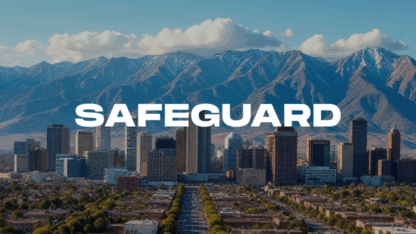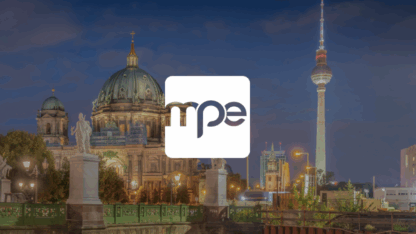What Is KYB?
Know your business (KYB) is a way for companies to understand the companies and organizations that they are working with and to reduce the risk of money laundering and other fraudulent activity that those companies could represent. The KYB verification process helps companies to meet their obligations under the EU’s 6AMLD and similar legislation around the globe.
KYB checks can be undertaken on suppliers, stakeholders, beneficiaries and other companies that have a relationship with the business performing them. They allow us to onboard business partners with a high level of confidence and trust.
Know your business is the business-related equivalent of know your customer (KYC), allowing companies to verify the identities of their customers and work towards their AML compliance.
How Does KYB Work?
KYB compliance works by putting measures in place to carry out due diligence on business partners, suppliers, and other relevant organizations. The process involves analyzing the businesses that a company works with, as well as identifying the legal representatives of those businesses and their ultimate beneficiaries.
This process provides a transparent picture of who benefits from a business’s profits, which is how KYB works to combat money laundering and other financial crimes.
KYB processes require a company to obtain certain details about the businesses with which it works. This includes obtaining business details such as:
- company name
- address
- registration number and registration documents
From there, you also need to verify that those details are correct. In most cases, it is also appropriate to check government sanctions lists and watchlists to ensure that those lists do not include the organization’s business partners.
Anyone who owns or controls a company must also be identified and verified, inclusive of finding the UBO. An ultimate beneficial owner (UBO) is considered to be anyone who owns 25% or more of a company’s total shares.
In terms of process implementation, there is a range of KYB software available. Many businesses choose these digital KYB solutions in order to comply with anti-money laundering requirements as efficiently and quickly as possible while keeping the cost of doing so relatively low.
After all, just as it is essential to ensure that know your customer processes are secure and frictionless, it is important to do the same for know your business procedures.
Discover how Sphonic leverages SEON’s fraud API and detection technology to provide KYB/KYC/AML services to its customers.
Read More
The Benefits of KYB
KYB processes deliver multiple benefits. These include:
- Legal compliance: Businesses that implement KYB processes are ensuring they meet compliance obligations under 6AMLD.
- Lower risk of fines: Global fines for financial crimes totaled $9.95 billion in 2021. Companies that comply with KYB requirements are at less risk of such fines than companies that don’t.
- Reputation protection: Taking a robust approach to KYB means that businesses can benefit from peace of mind, knowing they have done all they can to ensure their reputation remains unsullied by involvement in financial crime.
- Greater opportunities for growth: Companies that establish secure, trusting partnerships with other businesses can find themselves well-positioned for growth when the opportunity arises.
- Less money laundering: KYB processes make it harder for fraudsters to launder money and carry out other financial crimes such as terror financing. This is something from which the whole business community can benefit.
- Less corruption: The transparency that results from KYB compliance means that corruption is harder to hide.
Who Can Benefit from Know Your Business Measures?
Financial institutions are required to implement know your business measures. As such, it is banks, insurance companies and similar entities benefit directly from KYB processes by protecting their operations. They can use KYB processes to ensure that they do business with legal companies with clear structures, rather than shell companies designed to disguise illegitimate income as genuine earnings.
Beyond these, many legislators have ensured that KYC and KYB measures are also required from other types of companies that are believed to be money laundering risks. These include real estate agencies, cryptocurrency brokerages, antiques dealerships, iGaming platforms, and so on.
That said, it is not just the institutions undertaking KYB processes that benefit. The global business community as well as the economy at large wins when the operating environment is made safer by procedures such as KYB and KYC verification. Business customers benefit too, as they are at less risk of having to cover the cost of losses related to money laundering and other fraudulent financial activities.
Examples of KYB Requirements
KYB compliance requirements vary from country to country, so the measures a business must implement will depend on its jurisdiction. Some examples of KYB regulations that define what a business must do include the following.
| 6AMLD | This applies to all companies with financial activity in the EU. It replaced the 5th Anti-Money Laundering Directive (5AMLD), strengthening and broadening its definitions and rules. |
| Bank Secrecy Act | National banks, federal branches, federal savings associations and agencies of foreign banks in the US are required to comply with the Bank Secrecy Act, including program, recordkeeping, and reporting requirements. |
| Customer Due Diligence (CDD) Final Rule | The CDD Rule is an amendment to the Bank Secrecy Act designed to improve financial transparency and prevent money laundering and other financial crimes. |
| Financial Action Task Force (FATF) | The FATF is a global watchdog for money laundering and terrorist financing, setting international standards that aim to prevent such activities. |
See how SEON’s digital onboarding tools streamline your customer verification, reducing costs and improving the experience for legitimate users.
Ask an Expert
How Does KYB Fight Fraud?
KYB fights fraud by making it harder for criminals to launder their illegitimate income and disguise it as legally obtained funds. With financial institutions looking into the businesses that they are – or are considering – working with, it is tougher for criminals to set up shell companies through which they can flow their ill-gotten gains or commit B2B fraud.
The risk of global money laundering is increasing, with the annual Basel AML Index reporting a rise in risk score from 5.22 to 5.30 (out of 10) in 2021. As such, KYB measures are more important than ever.
Increased verification checks and the focus on ultimate beneficial owners provide greater transparency, which is at the core of how KYB measures fight fraud.








